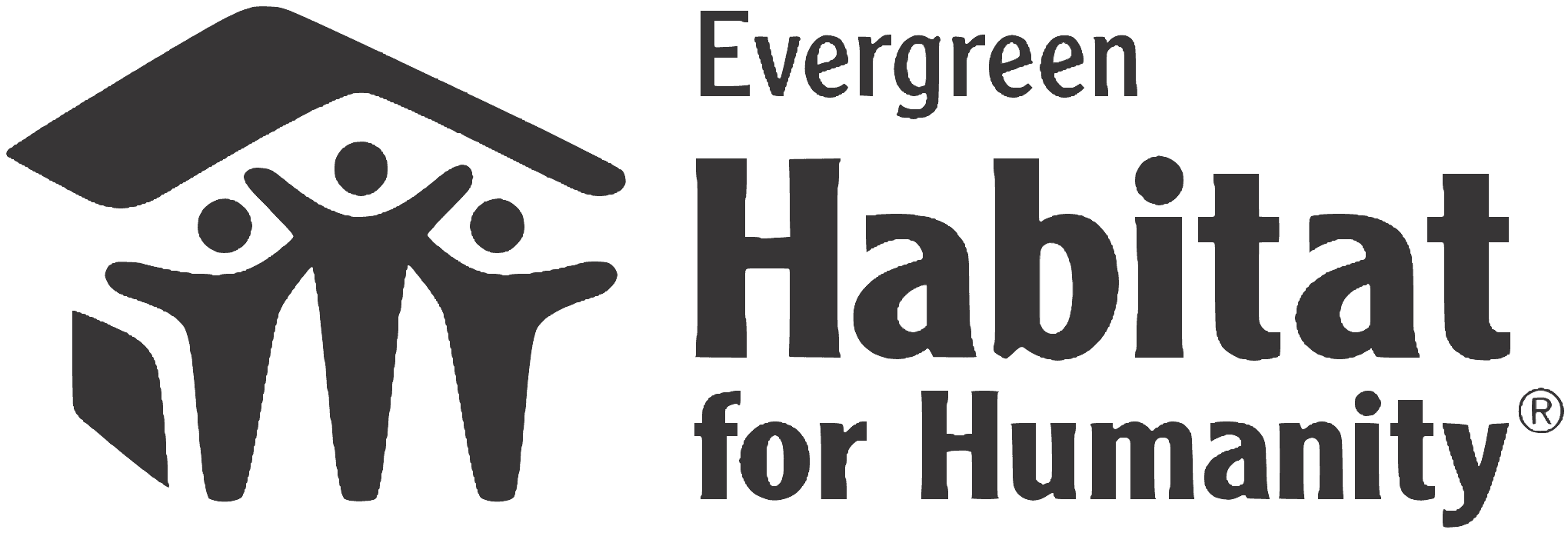Equity Statement
At Evergreen Habitat for Humanity, we believe in a world where everyone has a decent place to live. We strive to achieve this world by bringing people together to build homes, communities, and hope. We know that to create this world and do this work, we must center equity at all times. We seek to create a community of staff, volunteers, partners, and donors who are committed to centering equity and inclusion in all aspects of our work.
We acknowledge that we are able to build homes on the land that is known as Clark County due to the displacement of the Chinook, Cowlitz, and Klickitat peoples, who stewarded this land long before white settlers arrived. We also acknowledge the vast inequity in affordable housing and homeownership for residents of Clark County who identify as part of the Black, Indigenous, or other People of color (BIPOC) community. Furthermore, we acknowledge this country was and continues to be built on forced and undocumented labor. This history created inequities that continue to cause harm in our housing and labor industries today.
The earliest iteration of Habitat for Humanity was born from Koinonia Farms, a community founded in 1942 practicing intentional inclusivity and cross-racial partnership during racial segregation in rural Georgia. Residents of Koinonia Farms practiced principles of nonviolence, racial equality, and responsible land stewardship. It was here that the idea of “partnership housing” was built, and where Habitat for Humanity was later realized in 1976. Our history at Koinonia Farms illustrates that Habitat for Humanity was built intentionally on social and racial equity. As an organization that builds housing and establishes mortgages, we are at the intersection of sectors which have historically denied access to the BIPOC community.
Since 2020, Evergreen Habitat has intentionally aimed to better understand the history of housing inequality both locally and nationally. We recognize that discrimination in financial access, employment, healthcare, and education, as well as higher rates of incarceration and poverty within the BIPOC community are evidence both locally and nationally of systemic racism. We believe, as a housing organization, our responsibility is to learn from the racialized history of housing and systems of oppression and have a moral obligation to right these historical and present-day wrongs. To create just opportunities for affordable homeownership, we must continually assess how racism persists in our community and within our organization on a cultural, institutional, and individual level.
To do this, Evergreen Habitat for Humanity Commits to the following:
- Acknowledge that we are building on stolen land, thus as we reckon with this truth, we commit to develop meaningful relationships with local Tribes and Native communities.
- Understand and dismantle the structural barriers in place to keep communities of color from accessing homeownership.
- Ensure that we (staff, volunteers, partners, donors, families & individuals we serve) create an environment where people of every race, ethnicity, nationality, economic status, gender identity and expression, sexual orientation, age, size, and ability are not only represented and welcomed but celebrated and empowered.
- Examine our own policies, procedures, and delivery models through an equity lens to ensure we are breaking down barriers rather than creating them, or further exacerbating existing barriers.
We recognize that this work is fluid and ongoing. This is an evolving list as we continue our work, and we commit to listening to and elevating the voices of the community as we center equity. We promise to be transparent in our actions and our learnings. Thank you for engaging with us and going on this journey by our sides.


